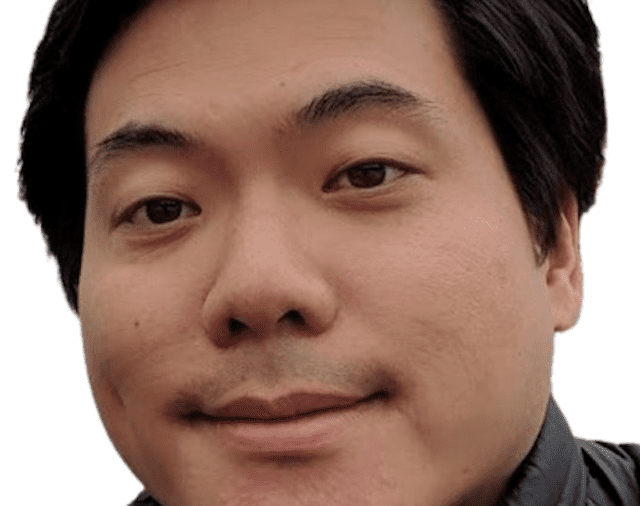Nhon Ma, CEO and co-founder of Numerade, is a believer in closing the learning gap and democratizing access to high-quality educational materials. In this interview, he shares insights into his life, which explains his motivation for creating and shaping Numerade, along with the changes taking place during COVID-19. Although Numerade’s short-form video education platform for STEM is naturally positioned for online learning, Ma expands on increased programming, and the recognition of the long-term effects the pandemic will have on education moving forward.
A native Angeleno who grew up in South Central and East Los Angeles, Ma chose LA as the backdrop for Numerade. His connection to Los Angeles burned bright even as he branched out to accomplishments in Google innovation, product, strategy operations, and analytics. Choosing LA for Numerade was intentional as Ma wanted to improve the discrepancies in education that he witnessed firsthand growing up.
Magnifying the Learning Gap
Unfortunately, pandemics have a way of magnifying already existing conditions. The learning gap is one of them. Those who have access to a good education and resources have high participation rates in remote learning, but those who aren’t as fortunate are seeing participation drop off. Ma adds, “The current state in this whole COVID experience is magnifying underlying issues at play. Right now, there’s this big debt that’s accumulating with not being able to teach our kids in a systematic way every single day. In the next few years out, what’s going to happen with these students in the broader society at large? You think about the summer gap that everyone knows about. It’s basically being extended because of the Coronavirus. From my perspective, that’s been big in terms of what we’re thinking about addressing.”
Numerade exists to close the education opportunity gap. Ma experienced both ends of the spectrum from early education in the LAUSD to a private high school opportunity through a program called A Better Chance. All of it had a way of opening his eyes to the discrepancies that exist. Vowing to make a difference, Ma looked to adopt the privileges experienced in private school and somehow bring them to a wider audience, and tutoring stood out.
“Back in my private school, a lot of my peers had tutors, and having tutors is a great way to build confidence in every single subject area,” he says. “Right now, with Numerade, we want to take the benefits of tutoring and make them available to as many students as possible. With our mission of making education as accessible as possible, the main focal point is taking the benefits of tutoring and then trying to scale that out to as many students as possible regardless of their income and their background. That’s the higher-level mission of why we exist.”
Over the past two years, Numerade has accumulated over 300,000 videos (a number that increases by hundreds each day) of step-by-step instruction aligned to top STEM textbooks. Video tutorials can help students stuck on particular topics. As Ma adds, “Explanations come from top PhDs and top educators [in] a network of over 7,000 right now who are actively creating content for us. In essence, we’ve taken an approach where we look for content educators can create, and [then] we’re able to scale that to as many students as possible that need the information the most.”
Ma looks to the entire setup for education success not missing a step in the knowledge process. “If a student in South Central LA or East LA wants to become a coder, it starts in middle school. You have to make sure that you know algebra, geometry, and trigonometry. If you somehow fall off within that sequence of learning, then it’s really hard for you to play catch-up,” he says. There’s a pathway as it relates to STEM, and it relies on a great deal of content to be successful. “That’s the reason why we created so much of this content going all the way back to middle school. We have this asynchronous approach with short-form video which is what Numerade is all about. It’s a short-form video platform.”
Allowing Students to Ask Questions
Asynchronous approaches have seen a boost during this COVID-19 pandemic, and Numerade’s Office Hours has exploded in use. Nearly a million new users have benefited in just a month with an additional million projected. “A lot has to do with students not getting the type of instruction through synchronous models of online teaching,” remarks Ma. “As a student goes through one of these one-hour courses online with their teachers, it’s hard for them to grasp the concepts, and it’s hard for them to get clarification in live streams. Office Hours product allows teachers to clarify and build out an asynchronous video lesson and then allows the students to ask questions as well.”
Ma believes in highlighting the teacher and showcasing their work through a platform that closes the gap in educational opportunity. “Our system puts our educators on such a high pedestal because we believe that teaching the content they create will, hopefully, inspire a new generation of students who love STEM,” he says. Teachers are thoroughly embracing the mission, and during COVID-19, some are even stepping up to offer free tutorials. “Right now, we just launched an initiative where we’re providing free tutoring. We reached out to our educator network and [received] over 200 educators who are willing to do volunteer tutoring. We’re taking this network and pairing them with students, mostly disadvantaged students. We’re opening this up to as many students [possible]. We are prioritizing disadvantaged students to get live tutoring, especially during this time.”
Subscribe to edCircuit to stay up to date on all of our shows, podcasts, news, and thought leadership articles.






